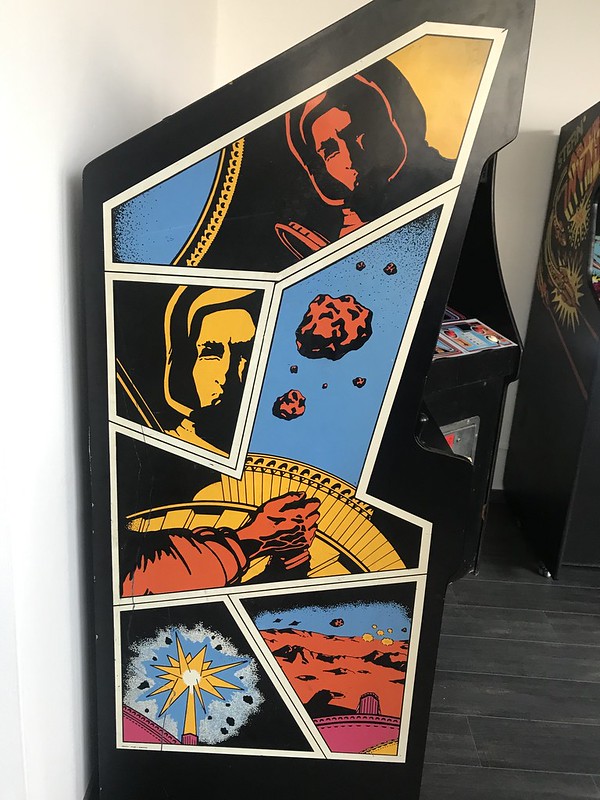YAPARO! or, yet another post about Reclaim Open 🙂 I’ve been inspired by so many great posts about Reclaim Open, and I’d spend more time summarizing them here, but that’s in the works for Reclaim Roundup, so I’ll try not to duplicate efforts. That said, Tim Klapdor already did a lot of this work in his “Journal – Week 24 2023” post. I love Tim, and he’s one of the many folks we missed dearly at Reclaim Open, but his spirit was very much present, particularly his brilliant thinking in this post about the coming costs of universities outsourcing our IT expertise—I still need to blog it, but let this quote suffice for the moment:
Almost every University now spends millions of dollars every year as a tax to Microsoft and AWS for hardware and a handful of software vendors to run their core business. Without spending that money, the University could not exist. They are now trapped into paying this indefinitely, and because the competition has been eaten up over time, we are now in a monopolistic vice. Over the next few years, we will see the vice tighten and the costs rise.
The only way to exit this state is to escape it entirely. Applying the same ideals as renewable energy – what if the new University set itself up to run independently as a sovereign entity, not reliant on 3rd party vendors and their costs? What if it embraced open-source software and collective hardware, not just as a consumer but as a contributor? What if it then sold those services and knowledge to others?
This outsourcing of core infrastructure and, as a result, staff expertise has absolutely become the rule in higher ed IT. Something folks at OpenETC and CUNY, amongst others, have pushed back on for years, but there is no denying the pandemic accelerated that process. Tim’s idea that the cost vice from these monolithic services will only get tighter and universities need to start considering alternatives sooner than later is right on. His likening that to renewable energy hits on yet another theme from Reclaim Open, and I’m beginning to get a sense that there is a core of edtech thinkers that are converging on some of these ideas and it is exciting to witness (Anne-Marie Scott is another I recently quoted).
And this is where the experience on the ground at Reclaim Open comes in, three days of thinking through this stuff with such awesome people in a loose, congenial environment was the ultimate professional development for the Reclaim Hosting team. Some of the Reclaim crew have only a vague idea of the world wide web of ed tech (whereas others have come up in it), so creating an experience where everyone got to hear, talk, and interact with practitioners in this field was the absolute best experiential learning imaginable.
I mean I hope everyone who came to Reclaim Open had a good time, I sure did, but at the same time this conference was pretty selfish. I wanted this group of passionate, generous educators who showed up to interact with a young, amazing team that’s just getting its feet. I knew the people we had collected could provide a welcome reminder to lead with the heart and the art. Watching the Reclaim team get inspired was the most powerful element of the three-day event. Which was epitomized by the moment when Noah, who started 8 months ago, came up to me after the last day and said “I kept hearing about this Aaron Schwartz guy, so I Googled him and WOW!” That was magic. I knew then and there this was akin to Faculty Academy or Northern Voice during my formative edtech years—I needed that community. Turns out we all do to some extent. Putting together people at different stages in their career provides a longer, inter-generational sense of what was, is, and can be in any field. But particularly in a field like edtech where the story is constantly being hijacked by the industry, erasing the work of many who have been part of a small, human-scaled community using accessible tech for teaching and learning—a noble calling that cannot, as Tim Klapdor reminds us, thrive in the monopolistic vacuum of big tech.

Getting the band back together! image credit: “DTLT at Reclaim Open” by Shannon Hauser
Ok, so there’s that, which brings me to the Division of Teaching and Learning Technology (DTLT) panel that took place during the un-conference. It was another selfish undertaking that brought together many of the original DTLT staff at UMW that worked on campus at some point between the mid 90s through today. All of the people on that panel I consider both friends and amazing colleagues, and they all had a huge impact on my personal and professional career. I cannot overstate how much I love these people, each and every one. So again, I am recognizing some deep bias here. That said, this was a team that many in the world of open web edtech looked at as a “city upon the hill,” we were brash, we wove the web into just about every course on campus, and we did it ethically and humanely. We worked individually with faculty and students alike, we taught some far-out classes to lead by example, and we built* and maintained the infrastructure where all this happened. We did the work and also had a ton of fun doing it, we were a team of people UMW had invested in for more than 20 years and the proof was in the pudding, things got done, the culture changed, and the possibilities of thinking through the web as a core literacy for the liberal arts was not only floated, but buttressed by an entire group that had the tools at their disposal to scale that vision across departments for an entire campus. What happened at UMW was impressive, people took notice, and there was a sense of anything’s possible. The “Dream team,” if you will, but nothing lasts forever, the pendulum swings back, and as Luke noted in his amazing post reflecting on Reclaim Open:
Much of the past decade has been spent refining, defending, and caring for that space with a cadre of comrades, while helping new generations of scholars learn how to build through it towards their goals. Though that work continues, I’ve watched with growing angst as the public university system all around us becomes ever more susceptible to the neoliberal logics of extraction, surveillance, and control. The work has become more tiring, and I came to Reclaim Open hoping to make better sense of my past and present, and to think more about futures I could be proud of, or even energized by.
It has been a tough decade for edtech, and there is a lot to be concerned about for sure, but I wonder if Tim Klapdor’s vision around university’s reclaiming their centrality by investing in people, not vendors, might be one possible future. And I want to believe teams like Reclaim Hosting model a lot of the values and work that was traditionally the domain of universities, that’s part of the education of this emerging team at Reclaim—to understand the deep connection we have to the universities we support, to understand in so many ways we were born of that system, but have also figured out a way to transcend some of its more internecine tendencies when it comes to the plague of our current generation of incompetent administration. This might be where Luke Waltzer’s highlight of the role of Chip German in the formation and preservation of UMW’s DTLT is quite telling:
The convening launched with a panel featuring the DTLT All-Stars reminiscing about what had been, and trying to identify the ingredients in the special sauce that made that unit such a powerhouse of innovation and experimentation 10-15 years ago. I came away thinking: damn, Chip German is the unsung hero of this story. His perspicaciousness and advocacy cleared the space for the DTLT gang to do their thing, and then he protected it.
How much of our current malaise in edtech is driven by a sense of capitulating both agency and vision for our universities to those that simply want to sell us a solution? I do understand the irony of me saying this as a vendor, but at the same time I think Reclaim Hosting is much more than that, and in some ways the state of the university administration and purchasing economy has forced us into a kind of exile, if you will. Is the only space for a dream team like DTLT in 2023 outside the walls of higher ed? I don’t think so, the work Kathleen Fitzpatrick is doing at Michigan State University highlights a powerful node of resistance, as do the aforementioned OpenETC and the CUNY mafia’s open insurrection. I’m sure there are many others, but the key is connecting those stories and collectively weaving a narrative of resistance and hope to battle the exhaustion and disillusionment. I do think Reclaim is a dream team in the making, but what became abundantly clear at Reclaim Open is that cannot happen in a vacuum, this needs to be a networked, connected ‘movement’ (the scare quotes are for Brian Lamb) that both articulates and creates the future of edtech we want to see. I think Reclaim is doing our part, but we need to do it in collaboration with others—that collective action is the thing that will push that pendulum away from its current parabola towards disconnection. And as Meredith Fierro notes in her forward-looking meditation on Reclaim Open:
I’d love to see more younger voices in our community, sharing their work and awesome perspectives. I’d love to explore how our work can be sustainable too. Working online has its perks, but finding small ways to help the environment a bit, will help keep it around far longer.
Voices like Amy Gay, Ruth Carpenter, Annescia Dillard, Nick Plank, and Alex Carney to name just a few were part of a new community of edtech that I want to hear more from, and I would throw that overseas to Lauren Heywood and Alex Masters in the UK. So many awesome folks. In fact, I see a lot of their fellow travelers in the cast of characters that comprises the Reclaim crew, all of whom were fired up about Bryan Alexander’s talk around the future and the importance of sustainability, renewable energy, and a way towards some kind of punk, whether edu, solar, or hope, they all provide an opening beyond our moment.

“The Reclaim Hosting Crew post Reclaim Open” image stolen from Meredith 🙂
________________________________________
*Is installing WordPress building?


















